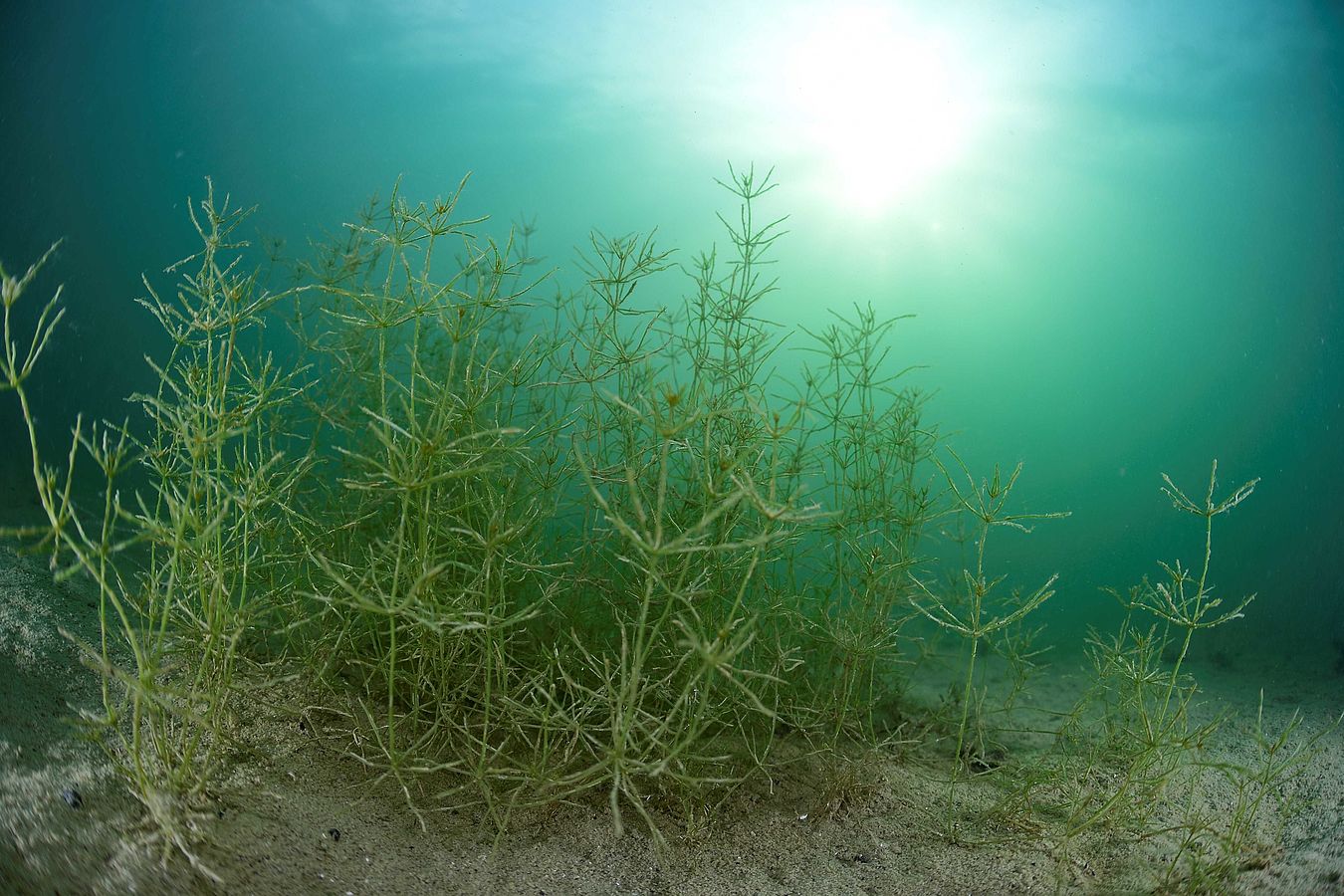Changes threaten biodiversity and drinking water quality

Lake Stechlin is an example of how oxygen is increasingly depleting in lakes. | Photo: Solvin Zankl
Oxygen levels in freshwater lakes are declining rapidly - faster than in the oceans. Over the past forty years, for example, oxygen levels in the deep waters of temperate lakes have dropped by nearly 19 percent. This is shown by a study with IGB published today in the journal Nature. This trend is mainly due to climate change and threatens freshwater biodiversity and drinking water quality.
The international research team, led by the U.S. Rensselaer Polytechnic Institute, analyzed a total of more than 45,000 oxygen and temperature profiles collected from nearly 400 lakes around the globe since 1941. Most of the long-term data came from the temperate zone, which ranges from 23 to 66 degrees north and south latitude. The analyses show that since 1980, oxygen levels in the lakes studied have declined by 5.5 percent at the surface and 18.6 percent in the deep zone of thermally stratified waters. Lakes are thus losing oxygen ca. 3-9 times faster than the oceans - a decline that has implications for the entire ecosystem.
Oxygen is a vital element in lakes
"All complex life depends on oxygen. It's the support system for aquatic food webs. And when you start losing oxygen, you have the potential to lose species," said Kevin Rose, author and professor at Rensselaer Polytechnic Institute. Oxygen concentrations regulate several factors controlling the water quality. In the absence of oxygen, e.g., methanogenic Achaea grow and produce more of the powerful greenhouse gas methane. As a result of increasing oxygen loss, the potential of lakes to release methane to the atmosphere strongly increases. Moreover, oxygen loss leads to a higher release of phosphorous from the sediments further increasing oxygen depletion in the deeper zones of stratified lakes.
Different processes cause oxygen depletion
Different mechanisms between surface and deep waters affect the link between climate warming and freshwater oxygen levels. Oxygen loss in surface water is largely simple physics: oxygen saturation - the amount of oxygen the water can hold - decreases as temperature increases. While surface water temperature rose by 0.38 degrees Celsius per decade, the concentration of dissolved oxygen in surface water fell by 0.11 milligrams per liter per decade.
"In Lake Stechlin - formerly one of the most beautiful clear-water lakes in northeastern Germany - for example, the oxygen-free zone at the deepest point of the lake has been steadily increasing for about 10 years, resulting in the lake no longer providing a habitat for animals, such as the endemic Fontane-Maräne, Coregonus fontanae, below 40 meters in autumn," explained Professor Hans-Peter Grossart, co-author of the study from IGB.
However, some lakes show rising dissolved oxygen concentrations at the surface as temperatures rise. This primarily affects lakes that are polluted with nutrient-rich runoff from agriculture and settlements and therefore have high algae growth. The possible cause is: warm temperatures and increased nutrient levels favor cyanobacterial blooms, whose photosynthesis leads to oxygen supersaturation in surface water. "The increase in dissolved oxygen concentration found in some lakes possibly indicates an increase in algae blooms, which can be harmful to the environment and humans," said Dr. Benjamin Kraemer from IGB, who is also author of the study.
Prolonged stratification of water leads to oxygen depletion in deeper waters
Oxygen depletion in deeper water follows a pathway related to rising water temperatures at the surface and prolonged summer-like conditions: Increased warming of surface water combined with stable cold deep-water temperatures lead to a stronger density difference between these layers, known as thermal stratification. The stronger and longer this stratification is, the less likely mixing is to occur. Thus, less oxygen reaches the deep water layers because oxygenation normally occurs through processes that take place near the water surface.
"Inland waters are still given too little consideration in the current climate debate, even though changes to these ecosystems have far-reaching consequences for us humans - after all, freshwaters are sources of drinking water and food. In some lakes in Germany, for example Lake Stechlin, the oxygen depletion is already critical and leads to a complete loss of oxygen at depth. This harms not only animals but also important ecosystem functions of inland waters", Hans-Peter Grossart summarized.
Jane, S.F., Hansen, G.J.A., Kraemer, B.M. et al. Widespread deoxygenation of temperate lakes.
Nature594, 66-70 (2021).
Leibniz Institute of Reshwater Ecology and Inland Fisheries
Prof. Dr. Hans-Peter Grossart
Department Experimental Limnology
Phone +49 33082 699-91
Email hgrossartigb-berlin.de
Dr. Benjamin Kraemer
Department Ökosystemforschung
Email bkraemerigb-berlin.de






